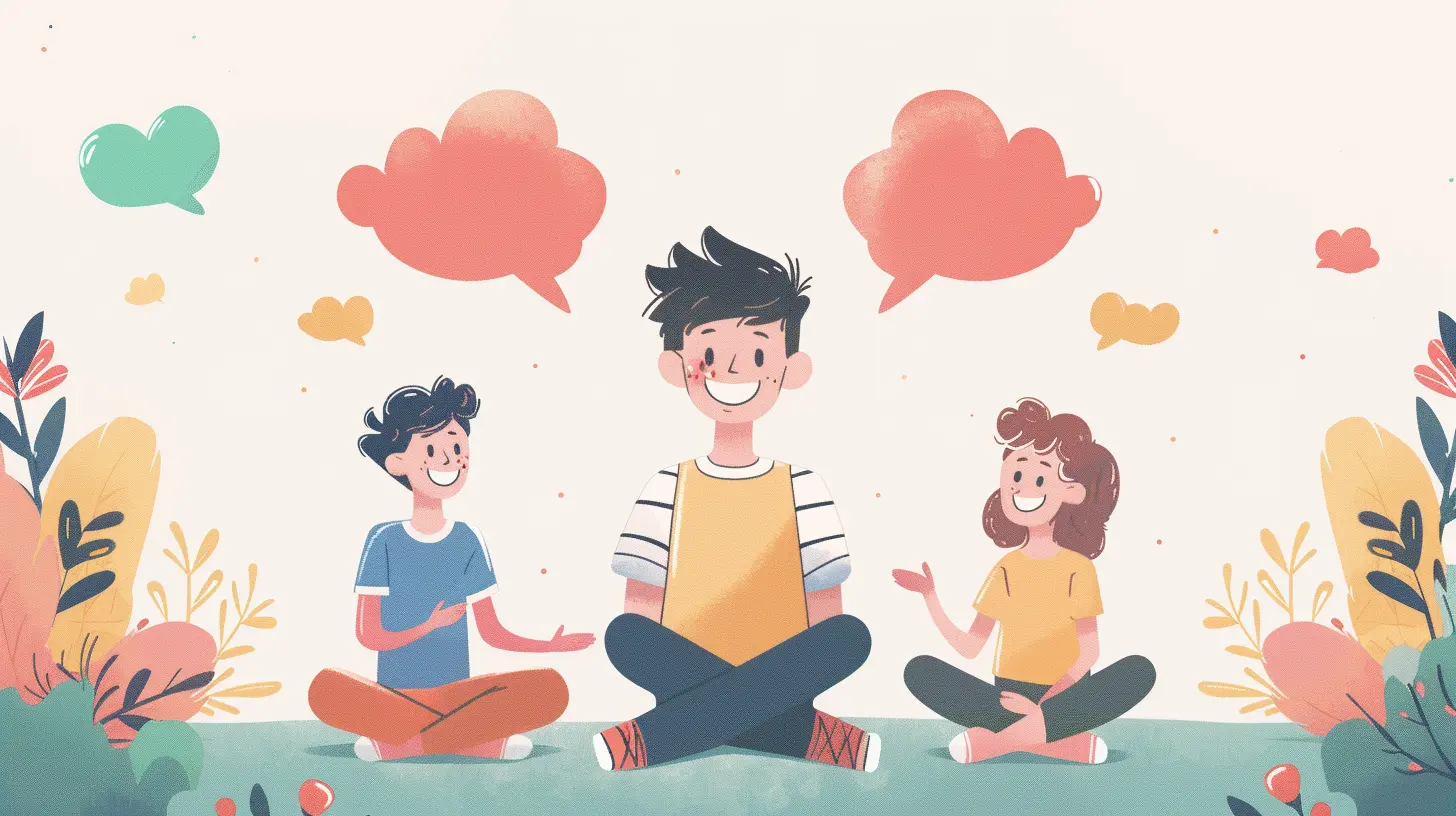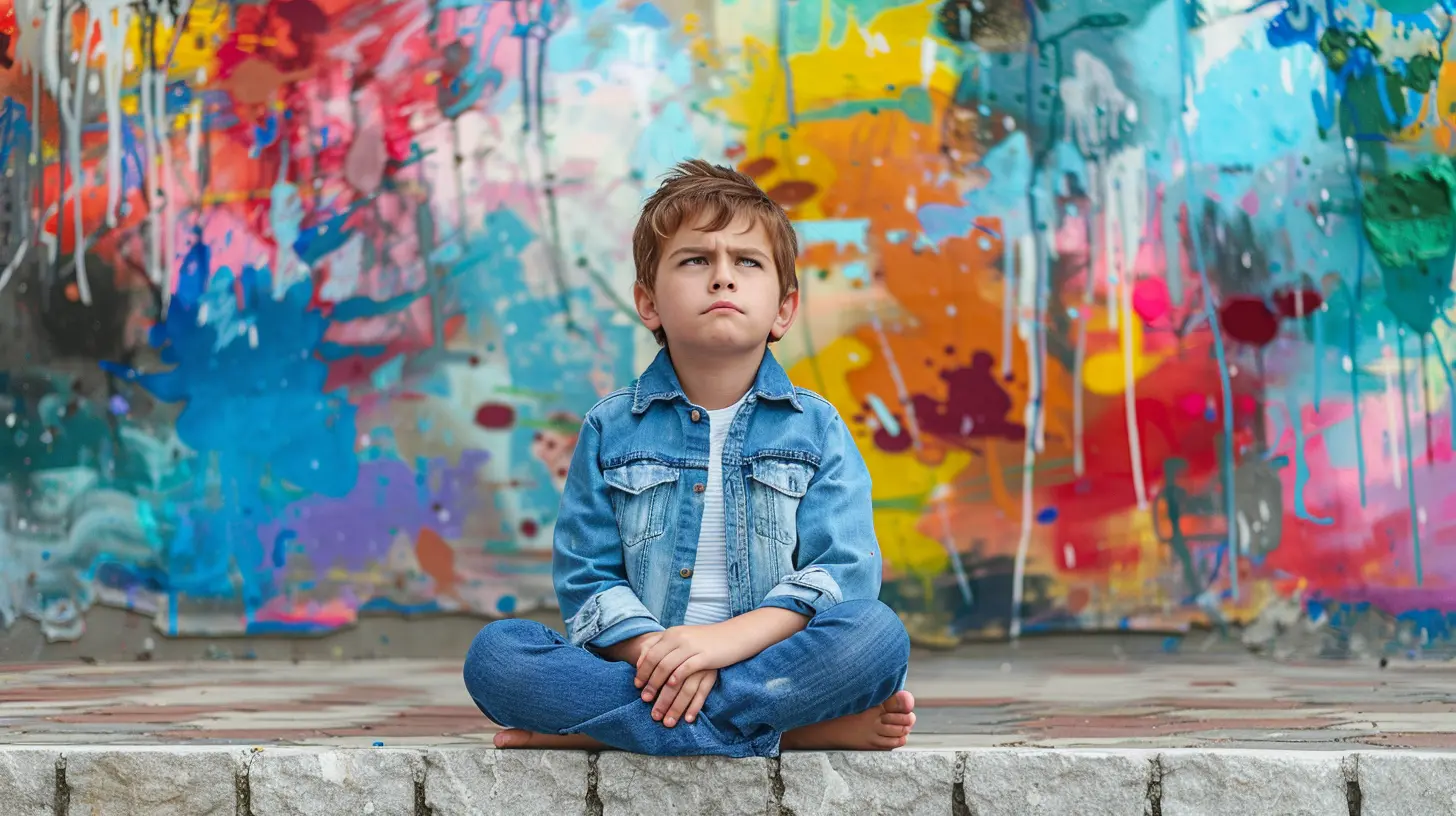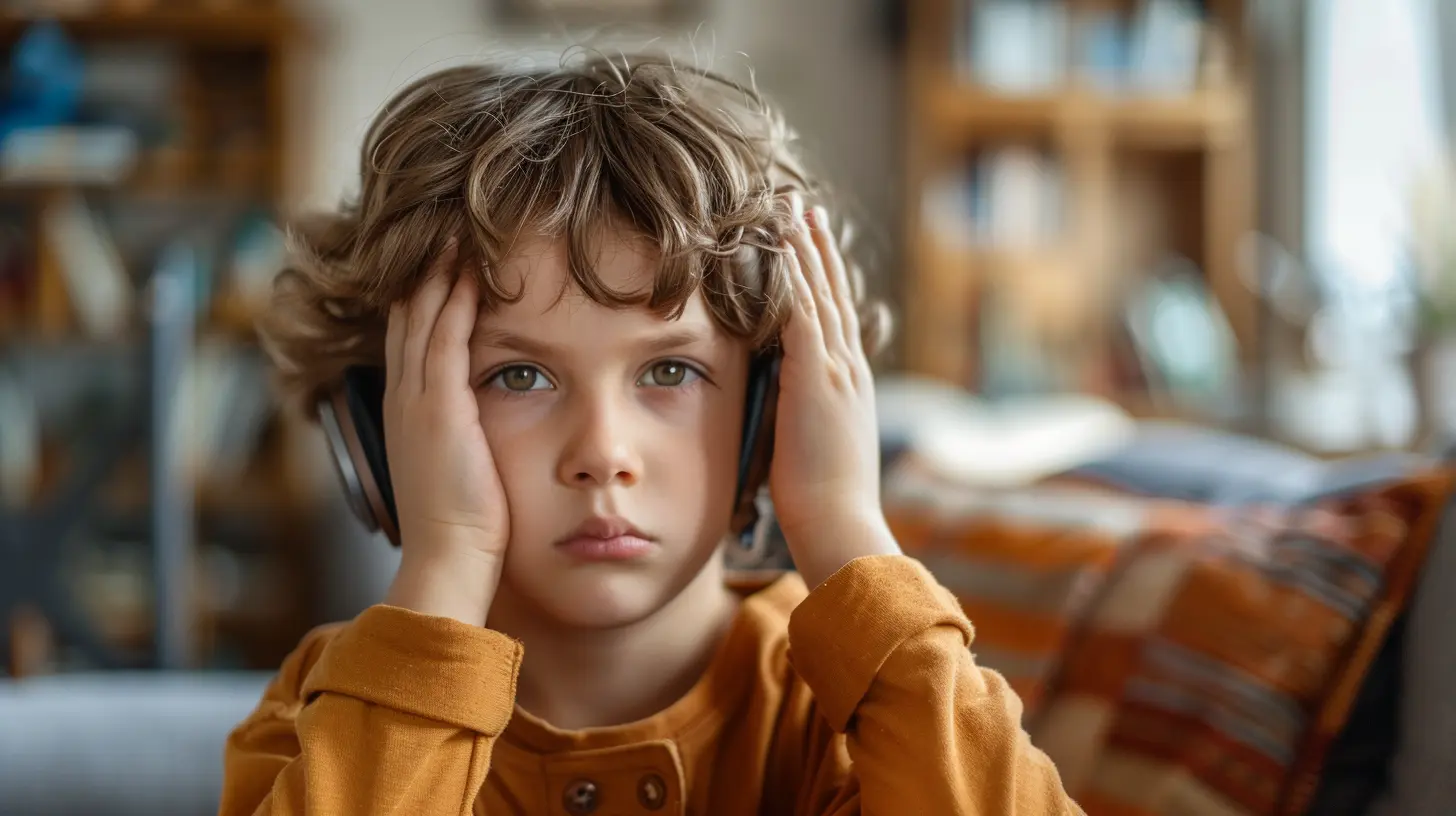Emotional Wellness in Kids: Tips for Open Communication
15 April 2025
Parenting is a rollercoaster of emotions, isn't it? One day, your little one is giggling uncontrollably, and the next, they’re pouting in a corner, refusing to talk. As parents, we often focus on our children’s physical health, ensuring they eat well and stay active. But what about their emotional well-being?
Emotional wellness is just as crucial as physical health. It helps kids navigate challenges, form strong relationships, and develop resilience. One of the best ways to support their emotional wellness is through open communication. But how can we create an environment where our children feel safe to express their thoughts and emotions? Let’s dive into some practical and heartfelt strategies to foster emotional wellness in kids. 
Why Emotional Wellness Matters
Imagine a child trying to carry a giant backpack filled with rocks. Every rock represents an emotion—fear, sadness, excitement, frustration. If they don’t have someone to help them unpack and sort through those emotions, the weight becomes overwhelming.Open communication allows children to unload their emotional burdens. It reassures them that their feelings are valid, helps them develop coping skills, and strengthens their bond with parents. When kids feel heard and understood, they are more likely to grow into emotionally intelligent and confident adults. 
How to Foster Open Communication
Creating a space where your child feels comfortable talking about their feelings doesn’t happen overnight. It requires patience and consistent effort. Here are some effective ways to encourage open communication:1. Be an Active Listener
How often do we half-listen while scrolling on our phones or thinking about dinner? Kids can sense when we're not fully engaged. Active listening means giving your child your full attention—eye contact, nodding, and responding thoughtfully.- Put away distractions when your child is talking.
- Repeat back what they say to show you understand.
- Validate their emotions. Instead of saying, “It’s not a big deal,” try, “That sounds really frustrating. Want to talk about it?”
When kids see that their feelings matter, they’ll be more willing to share.
2. Create Safe Spaces for Conversations
A child won't open up if they fear being judged or punished. They need to feel safe to express their emotions without the fear of reprimand.- Avoid reacting with anger or dismissal when they share something difficult.
- Encourage honesty by modeling it yourself. If you had a rough day, say, “I felt really stressed today, but talking about it helped me feel better.”
- Let them know that all emotions—even anger and sadness—are normal.
A judgment-free zone strengthens trust and ensures your child knows they can always come to you.
3. Encourage Emotional Expression Through Play
Not all kids are comfortable verbalizing their emotions. Sometimes, emotions come out better through play, art, or storytelling.- Use role-playing games to act out different emotions.
- Draw or paint feelings together.
- Read books about emotions and discuss the characters' experiences.
For younger kids, dolls or stuffed animals can serve as "safe listeners" to help them process feelings. Creativity is a fantastic outlet for emotions that words can't always capture.
4. Ask Open-Ended Questions
Instead of the usual, "How was your day?" (which often gets a one-word answer), try asking more open-ended questions that spark meaningful conversations:- “What was the best part of your day?”
- “Did anything make you feel frustrated today?”
- “If you could change one thing about today, what would it be?”
Open-ended questions encourage kids to reflect on their emotions and express themselves freely. 
Teaching Kids Emotional Intelligence
Emotional intelligence (EQ) is just as important as IQ. Kids with high emotional intelligence handle stress better, build healthier relationships, and make wiser decisions. But how do we nurture EQ in our children?1. Help Them Name Their Emotions
Many kids struggle to describe what they're feeling. Giving them the vocabulary to name their emotions is crucial.Instead of saying, “I feel bad,” encourage them to be specific:
- “I feel frustrated because my friend didn’t want to play with me.”
- “I feel nervous about my test tomorrow.”
When kids can label their feelings, they feel more in control and can better communicate their needs.
2. Teach Healthy Coping Mechanisms
Children need tools to handle tough emotions in a healthy way. Here are some simple coping techniques:- Deep breathing exercises (try the "smell the flower, blow out the candle" technique).
- Writing or drawing in a feelings journal.
- Physical activities like jumping jacks or stretching to release built-up tension.
- Encouraging them to talk to a trusted adult when they feel overwhelmed.
Teaching these coping skills early helps children manage stress more effectively as they grow.
3. Model Emotional Regulation
Kids learn by watching us. If we react with anger, they'll mimic that. But if we handle stress calmly and openly discuss our feelings, they’ll do the same.Try saying things like:
- “I’m feeling really frustrated right now, so I’m going to take a few deep breaths before I respond.”
- “I made a mistake today, but I learned from it. That’s how we grow.”
When kids see us regulating our emotions, they learn it's okay to feel and process emotions without shame. 
Building a Strong Parent-Child Connection
At the heart of emotional wellness is a strong parent-child bond. When kids feel connected to their parents, they naturally open up more. Here are some ways to strengthen that connection:1. Have One-on-One Time Daily
Life is busy, but even 10-15 minutes of uninterrupted time with your child can make a world of difference. Whether it’s reading a book, playing a game, or simply chatting before bed—consistent quality time reinforces your bond.2. Show Empathy and Understanding
Put yourself in their shoes. Remember what it felt like to be a child? Sometimes, what seems small to us is huge to them. Instead of dismissing their feelings, try saying:- “I can see why you're upset. That must have been really hard.”
- “I used to feel the same way when I was your age.”
Empathy makes children feel truly understood and valued.
3. Encourage Gratitude and Positivity
Help kids focus on the good moments in their day by practicing gratitude. Ask, “What was something that made you smile today?” Gratitude helps shift focus from negativity to appreciation.Final Thoughts
Emotional wellness in kids isn’t about making sure they’re happy all the time—it’s about helping them develop the tools to navigate their emotions confidently. By fostering open communication, teaching emotional intelligence, and strengthening parent-child bonds, we can raise children who are emotionally resilient and mentally strong.Raising emotionally healthy kids takes consistent effort, but every conversation, listening moment, and hug makes a difference. So, the next time your child opens up—even if it's about something small—cherish it. You’re building a foundation for a lifetime of trust and emotional well-being.
Because when kids feel heard, valued, and loved, they thrive.
all images in this post were generated using AI tools
Category:
Mental HealthAuthor:

Maya Underwood
Discussion
rate this article
4 comments
Peregrine McDaniel
This article beautifully highlights the importance of fostering open communication with our kids. Remember, every conversation is a step toward building emotional resilience. Let’s empower our children to express themselves, creating a safe space for their feelings to flourish.
May 8, 2025 at 4:34 AM

Maya Underwood
Thank you for your thoughtful comment! I completely agree—open communication is vital for fostering emotional resilience in children. Let's continue to encourage these important conversations!
Erica McCullough
This article is a valuable resource for parents seeking to foster emotional wellness in their children. Open communication is essential for building trust and understanding. The practical tips offered are straightforward and easy to implement, making it approachable for all parents. Thank you for sharing such important insights!
May 1, 2025 at 4:27 PM

Maya Underwood
Thank you for your thoughtful feedback! I'm glad you found the tips helpful for fostering open communication and emotional wellness in children.
Henry McCord
Like a well-tuned kazoo, open communication in kids can create the sweetest melodies! 🎶 Let's embrace the oddities of parenting and strike a harmonious chord in emotional wellness!
April 18, 2025 at 4:39 AM

Maya Underwood
Absolutely! Embracing the unique aspects of parenting fosters open dialogue and emotional growth in kids. Let's keep the conversation going! 🎶
Astranor McCaffrey
Great tips! Open communication is so vital for our kids’ emotional well-being. It’s all about creating a safe space where they feel heard and understood. Thanks for sharing these practical insights!
April 17, 2025 at 4:36 AM

Maya Underwood
Thank you for your kind words! I'm glad you found the tips helpful. Open communication truly makes a difference in our kids' emotional wellness!



